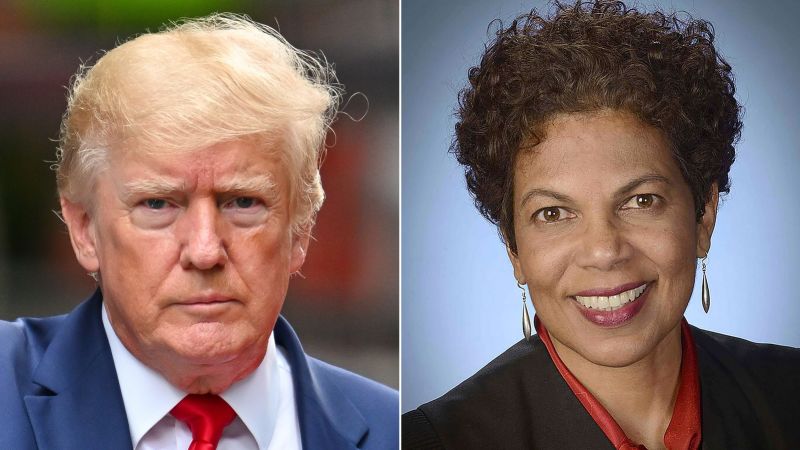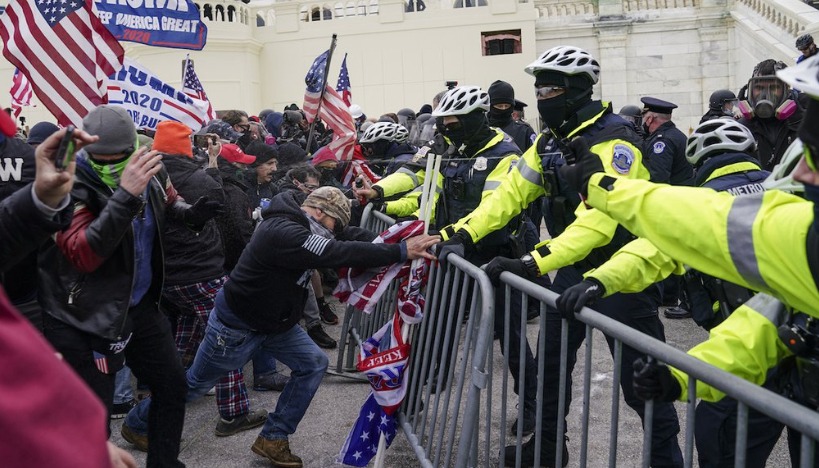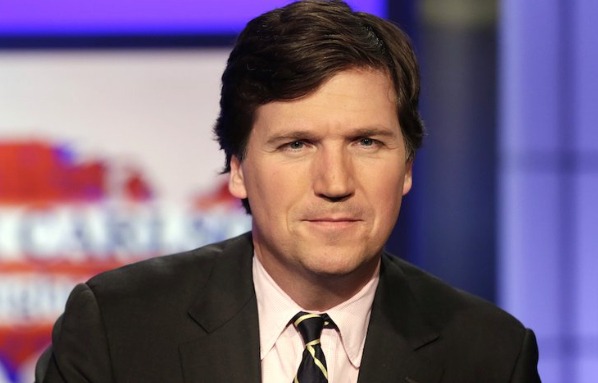US District Judge Sets Limits on Trump’s Handling of Evidence in Election Subversion Case
A federal judge has issued an order that limits how former President Donald Trump and his legal team can handle and publicly share sensitive information in an ongoing case. The order, issued by US District Judge Tanya Chutkan, defines sensitive information as grand jury secrets, evidence obtained through court-approved searches, and sealed orders related to the investigation. It also includes material from other government agencies, such as the Secret Service. This order comes as prosecutors argue that the sensitive information represents a large amount of the evidence they’ve collected.
Judge Chutkan’s handling of the case is likely to serve as a contrast to US District Judge Aileen Cannon, a Trump appointee in Florida. Cannon has been criticized for what some say is a favorable treatment of the former president in a previous lawsuit. Cannon has been accused of being less inclined to move proceedings along in a classified documents case against Trump.
In a recent court hearing, Judge Chutkan made it clear that former President Donald Trump’s political campaign cannot take precedence over the administration of justice. The judge’s ruling came after a heated exchange between the defense attorney, Lauro, and the judge regarding what Trump should be allowed to say about the evidence in his criminal case.
Lauro argued that while speech that intimidates a witness should be prohibited, Trump should be allowed to make statements based on his personal memory that also happen to be evidence in the case. However, Judge Chutkan disagreed, stating that the fair use of information must be balanced with the need for justice to be served.
Lauro presented a hypothetical scenario in which Trump makes a statement during a debate with his former Vice President, Mike Pence, who is also a key witness in the case. The defense attorney suggested that Trump’s speech could overlap with the evidence in discovery. However, the judge firmly stated that Trump, as a criminal defendant, will have constraints just like any other defendant, and the case will proceed in a normal order.
Judge Chutkan emphasized that Trump’s defense must happen in the courtroom, not on the internet. She reminded Lauro that there is a distinction between what his client needs to do to defend himself and what he wants to do politically. The judge made it clear that the administration of justice takes precedence over political campaigns.
The special counsel has requested that the trial begin on January 2, 2024, a date that Trump rejected in a social media post. The case continues to evolve, and this story will be updated with any new developments.
Follow this story to stay updated on the latest developments in the criminal case against former President Donald Trump.
Unveiling Judge Tanya Chutkan’s Game-Changing Verdict: Donald Trump’s Free Speech Rights in the January 6 Case
In a recent and highly anticipated ruling, Judge Tanya Chutkan made a game-changing decision regarding former President Donald Trump’s free speech rights in the January 6 case. The verdict has sparked intense debate and raised important questions about the limits of free speech, especially when it comes to public figures and their potential influence on their followers.
The events of January 6, 2021, will forever be etched in the annals of American history. On that fateful day, a violent mob stormed the United States Capitol, leaving a trail of destruction and chaos in its wake. The incident, which resulted in multiple injuries and loss of life, shocked the nation and sent shockwaves around the world.
As the nation grappled with the aftermath of the attack, many turned their attention to the role played by then-President Donald Trump. His fiery rhetoric and repeated claims of election fraud had fueled the anger and frustration of his supporters, leading some to believe that his words had directly incited the violence that unfolded on that dark day.
In the wake of the events, legal experts and scholars began to question whether Trump’s speech could be considered protected under the First Amendment, which guarantees the right to free speech. While the First Amendment is a cornerstone of American democracy, it is not without its limitations. Incitement to violence, for example, is not protected speech.
Judge Chutkan’s ruling addressed this very issue. She determined that Trump’s speech, while protected under the First Amendment, could be subject to legal scrutiny if it incited violence or posed a clear and present danger to public safety. This groundbreaking decision has significant implications for the ongoing investigations into the events of January 6 and the potential legal consequences for those involved.
The ruling has been met with both praise and criticism. Supporters argue that it sets an important precedent, emphasizing that even public figures must be held accountable for their words when they cross the line into incitement. They believe that this decision will deter future leaders from using inflammatory language that could potentially lead to violence.
On the other hand, critics argue that the ruling infringes on Trump’s free speech rights and sets a dangerous precedent for silencing political opponents. They contend that the decision opens the door for subjective interpretations of what constitutes incitement, potentially stifling robust political discourse and dissent.
It is important to note that Judge Chutkan’s ruling does not determine Trump’s guilt or innocence in relation to the events of January 6. Rather, it establishes a legal framework for evaluating the potential consequences of his speech. The burden of proof still lies with the prosecution to demonstrate that Trump’s words directly incited violence or posed a clear and present danger.
As the legal proceedings continue, it is crucial to remember that the case at hand is not just about Donald Trump. It is about the delicate balance between free speech and public safety, and the responsibility of leaders to choose their words carefully. The outcome of this case will undoubtedly shape the future of political discourse in the United States and serve as a reminder of the power and consequences of words spoken by those in positions of influence.
In conclusion, Judge Tanya Chutkan’s game-changing verdict regarding Donald Trump’s free speech rights in the January 6 case has ignited a fierce debate about the limits of free speech and the responsibility of public figures. While the ruling sets an important precedent for holding leaders accountable for their words, it also raises concerns about potential infringements on free speech rights. As the legal proceedings unfold, the nation watches closely, recognizing the significance of this case in shaping the future of American democracy.








